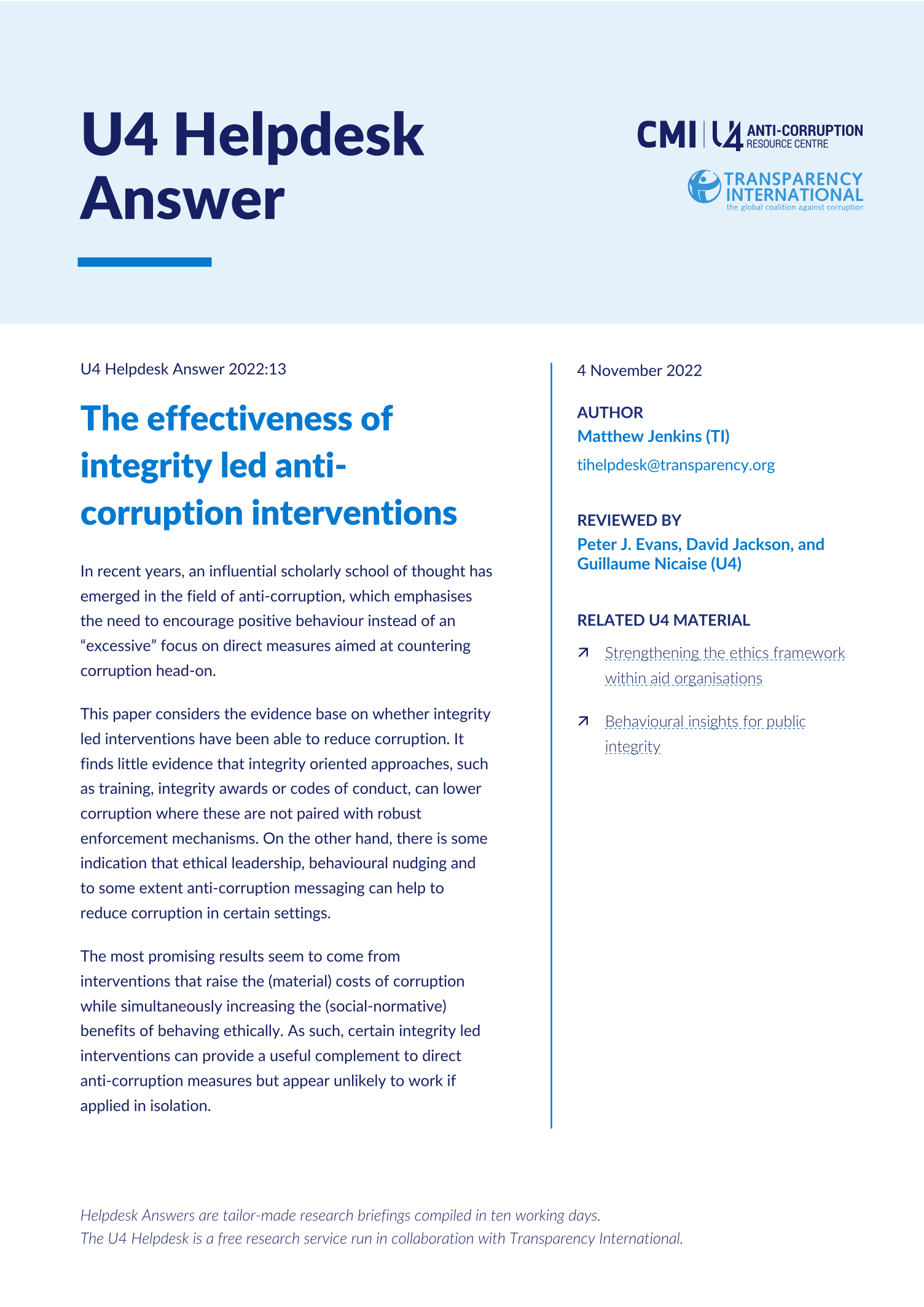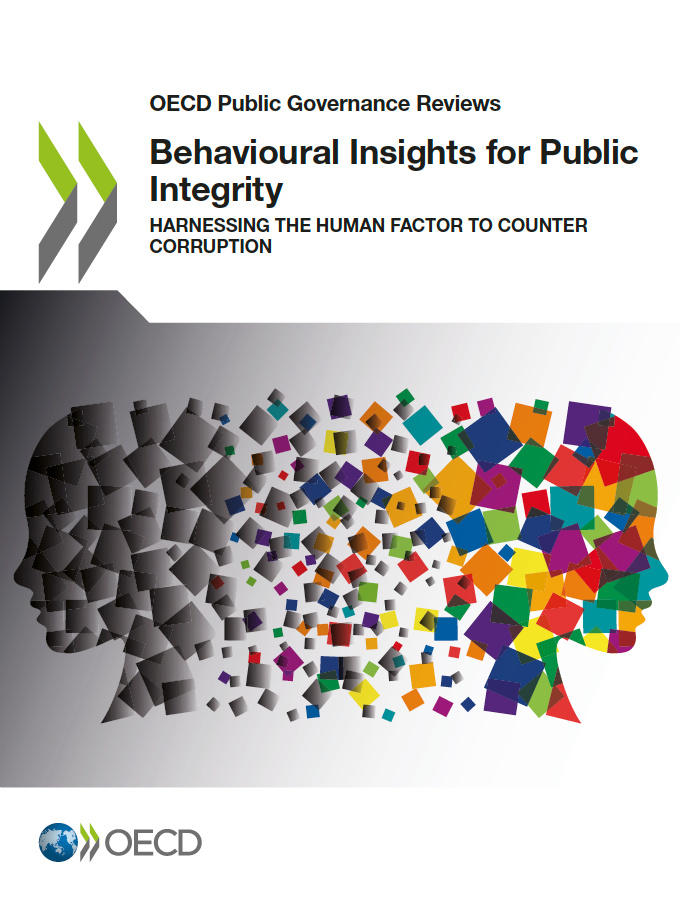U4 Helpdesk Answer
The effectiveness of integrity led anti-corruption interventions
In recent years, an influential scholarly school of thought has emerged in the field of anti-corruption, which emphasises the need to encourage positive behaviour instead of an “excessive” focus on direct measures aimed at countering corruption head-on. This paper considers the evidence base on whether integrity led interventions have been able to reduce corruption. It finds little evidence that integrity oriented approaches, such as training, integrity awards or codes of conduct, can lower corruption where these are not paired with robust enforcement mechanisms. On the other hand, there is some indication that ethical leadership, behavioural nudging and to some extent anti-corruption messaging can help to reduce corruption in certain settings. The most promising results seem to come from interventions that raise the (material) costs of corruption while simultaneously increasing the (social-normative) benefits of behaving ethically. As such, certain integrity led interventions can provide a useful complement to direct anti-corruption measures but appear unlikely to work if applied in isolation.

Cite this publication
Jenkins, M. (2022) The effectiveness of integrity led anti-corruption interventions. Bergen: U4 Anti-Corruption Resource Centre, Chr. Michelsen Institute (U4 Helpdesk Answer 2022:13)
Disclaimer
All views in this text are the author(s)’, and may differ from the U4 partner agencies’ policies.
This work is licenced under a Creative Commons Attribution-NonCommercial-NoDerivatives 4.0 International licence (CC BY-NC-ND 4.0)

